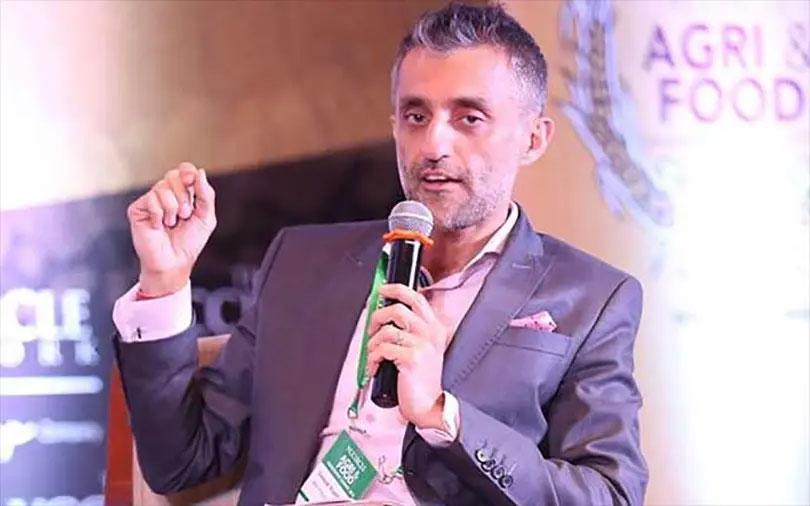After tasting success in a string of consumer investments such as Sula Vineyards, online travel agent Cleartrip and food company Bakers Circle, early stage private equity investor Deepak Shahdadpuri is planning to hit the road to raise an additional $15 million for his new fund DSG Consumer Partners.
DSG is an evergreen investment and holding company with no fixed term unlike a typical PE firm which has a life of seven to 10 years. The fund, set up in January 2013, has so far raised a corpus of about $12 million pooled from his friends and former colleagues, besides his own capital.
Shahdadpuri, who is based in Singapore, is now looking to top up the fund with an additional $15 million to invest in new companies and provide additional funding to existing portfolio firms. Besides, he will be expanding his focus to other Asian countries such as Singapore, Malaysia and Indonesia.
DSG has invested in 11 companies so far of which one, online grocer Redmart, is based in Singapore while the rest are in India. DSG has also invested more this year in existing portfolio companies like Veeba Food and mobile payment company MSwipe Technologies, while it has made fresh bets on Furtado School of Music and travel firm Oravel.
According to Shahdadpuri, MSwipe and Redmart have already raised new rounds of funding at “significantly higher” multiple to DSG’s entry cost, while his other portfolio companies cheese manufacturer Exito Gourmet, Veeba Food and Bakers Circle, will be raising new rounds of funding in the next six to nine months at a “healthy markup.”
High on Sula
However, Shahdadpuri will primarily ride on the success of his best pick so far, Sula Vineyards owner Nashik Vintners, in which he had invested Rs 13.3 crore for a minority stake in 2005. He has sold almost 90 per cent of that at a cash-on-cash multiple of 6.2X.
Shahdadpuri says his investment in Sula should return a blended multiple of 8X (including the small unrealised portion) which is about 47 per cent IRR in rupee and 45.7 per cent in dollar terms. Sula was believed to be valued at Rs 700 crore in the last transaction.
The investment in Sula was made from Shahdadpuri’s first fund GEM India Advisors, a fund he set up in 2003 with a mandate almost similar to that of DSG. GEM India had deployed $14 million in five companies and has taken out $24 million till now, according to Shahdadpuri. While the fund still holds stakes in four of the five companies, it has completely exited Canvas & Paper Company making 5.3X and partially exited Nashik Vintners (6.2X) and Cleartrip (8.1X).
After GEM India, Shahdadpuri had co-founded Beacon India Private Equity Fund, a $200 million PE fund, along with Alok Sama and Brij Singh in 2006. In December 2012, Shahdadpuri relocated to Singapore for personal reasons. He still spends half of his time managing the existing Beacon portfolio with Sama and Singh.
Strategy that paid off
“I have always followed one strategy—to look for businesses in the consumer sector which can be market leaders in their space even if they are a niche,” Shahdadpuri said, adding, “I have already returned four cheques to my investors from the Sula exit.”
Shahdadpuri might be upbeat about early stage consumer investing but some limited partners still consider it a lot of "hard work". "It is actually very hard to build companies ground up. Building a portfolio of firms ground up is extremely time and bandwidth consuming. From a fund economics perspective, you will have to wait many years before you start getting exits. And given the fund cycles, getting your first fund exited in a reasonable time is not going to be an easy task,” says Anand Prasanna, director, Morgan Creek Capital, a limited partner who invests in private equity firms.
"Historically, many investors have been seeding early stage consumer companies. It is mostly done by family offices or vehicles which are backed by family offices,” Prasanna said, adding, "If you are thinking about seeding early stage consumer-based companies, then the risk return is higher and we would expect at least 30 per cent IRR because the risk we take is really high. If we have to back an early stage consumer-focused fund, we would expect at least 500 basis points more than growth capital for taking the early stage risk.”
According to LPs like Prasanna, the early stage market has an opportunity because traditional PE firms do not enter deals requiring long gestation periods. “If an early stage fund manager invests in consumer businesses with a view of selling them in five to six years of average holding period, then it becomes interesting for a traditional PE LP. But if you are a fund manager with a 10- or 15-year time horizon to scale up that business to a very significant size, then it goes beyond typical private equity time horizon which can be a challenge,” he said.
When Shahdadpuri entered Sula, it was the No 3 winemaker with a 15 per cent market share and today it is the leader with a 65 per cent share and is five times bigger than the No 2 player, Grover Zampa.
“I work with promoters to lay down a strategic vision of where we can be in next 10 years and more tangible targets for the next three years,” Shahdadpuri said. “I really enjoy identifying and working with companies whose sales are between Rs 1 crore and Rs 30 crore. This is my sweet spot and I would like to take them to Rs 100 crore and beyond. Once they cross that stage, there are investors who are better experienced and with different resources to handle them,” he added.
Another multi-bagger in the offing
Another investment of Shahdadpuri that may go the Sula way is Bakers Circle, a supplier of frozen dough and dessert to food companies. The company had a turnover of only Rs 2 crore when Shahdadpuri invested in it in 2006, which has now grown to Rs 66 crore (FY 2013-14). Though Shahdadpuri is yet to make an exit in this company, he claims his investment is currently valued at least three times the capital deployed.
Although the firm, which boasts of clients like Kentucky Fried Chicken, Dominos’ Pizza, Pizza Hut, Subway and McDonald’s, could have been much bigger if the retail market had opened up. Shahdadpuri said, “When I had invested in Bakers Circle, I thought that in 10 years there would be many more supermarkets with a broad selection of frozen foods. But the number of supermarkets is not even 5 per cent of what I thought it would be. The challenge is that in the frozen segment where we are really good, India is not ready,” Shahdadpuri said.
But Bakers Circle is not just betting on India, as it plans to go global in a big way. “I am making a further investment in Bakers Circle—my fourth investment in the company since 2005. There is a lot of interest for our products in the Middle East and we are working on how to grow the business, increase our product range and exploit the opportunities available like exports,” he said. The company expects to have a turnover of Rs 150 crore in three years.
Industry experts see a good run for early stage consumer companies as many try to create a niche for themselves.“There are many local brands which are trying to scale up; so the opportunity has opened up for investments in the stage. The early stage companies that have something unique to offer are attracting investments,” says Harish HV, partner at Grant Thornton.
No cakewalk
Shahdadpuri has had his own share of bitter experiences as well. For instance, his investment in Delhi-headquartered Crazy Noodles restaurant chain has been through a difficult patch with a number of stores being closed down. “We made many mistakes in the early years, as we were new to the industry when we invested in 2005,” he recalled. The company has, however, restructured and found a model that is profitable at the store level and is also easier to scale up. Crazy Noodles reported its first quarterly profit in June after posting losses for many years.
An episode that Shahdadpuri may want to put behind is his $4 million investment in Ramesh Vangal-owned liquor company Mason & Summers, which is stuck in a legal dispute. “The arbitration has decided in our favour, while Vangal is appealing. We have written the investment to zero but continue to pursue all legal options to secure our investment,” Shahdadpuri said, adding this is the only aberration in his portfolio.
Optimistic
Shahdadpuri believes there is a lot of headroom in Indian consumer sector. “I am excited about the consumer sector because no one really wants to do early stage in non-technology consumer businesses. Buying land, setting up a plant, focusing on quality and dealing with labour is hard work and just isn’t sexy which puts many investors off. The bigger funds cannot do early stage because they have to put a minimum investment amount. DSG has the flexibility to write cheques as small as Rs 1 crore,” Shahdadpuri said.
Shahdadpuri noted that when he set up GEM India in 2004 many investors he spoke to were sceptical about the India consumer story. In fact, it took a lot of efforts to convince some of GEM India’s early backers about the fund’s strategy and opportunity. Now with successes like Sula and Cleartrip, scepticism is giving way to optimism, albeit somewhat guarded given that there have only been a handful of profitable exits to date.





